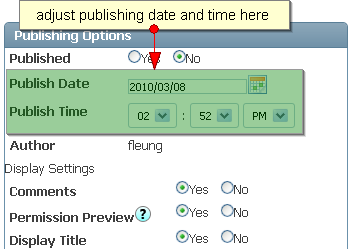- ΠΡΟΓΡΑΜΜΑ ΜΕΛΩΝ
- Οι χάρτες σας
- Υπολογίστε ένα νέο χάρτη
- ΥΠΟΛΟΓΙΣΜΟΙ για όλους
- Ο Ουρανός τώρα
- Αστρολογικές εφημερίδες
- Εκλείψεις 1500 - 2099
- Σελήνη Κενή Πορείας
- Πλανητικές ώρες
- Χάρτης για όποια μέρα
- Γενέθλιος χάρτης 360 μοιρών
Αστρολογία για όλους FAQ
Here you can find answers to questions about how the board works. Use the links or search box below to find your way around.
How do I create an Article?
If you have been given permission to create new content in a CMS Section, there will be a "Create New Article" button in the top right corner of the screen. Press this button to load the Article Editor.
How do I create a rough draft of an article?
Right now there isn't a way to save a rough draft of your article. But, you can use the Publishing Date and Publishing Time fields in the article form to delay the date the article is published to the public. This will give you time to go back to change and revise your article before it appears in its assigned section.


Why is my article not showing in the section page?
vBulletin's CMS tools allows you to control when and where an article is published on your site. If you don't see your article in the section immediately, you should do the following:
- Check to see if you are in the right section.
- Check to see if the permissions for the section have been set so that only a certain group of users can see the section. If it is, the article will not be made visible to the general public unless the "preview" option was selected at creation.
- Check to see if your article has been published.
- Check to see if the "Start Publishing" date was set to either a date before today or today's date.

 ΕΔΩ ΧΤΥΠΑ Η ΚΑΡΔΙΑ ΤΗΣ ΑΣΤΡΟΛΟΓΙΑΣ
ΕΔΩ ΧΤΥΠΑ Η ΚΑΡΔΙΑ ΤΗΣ ΑΣΤΡΟΛΟΓΙΑΣ




Συνδεθείτε μαζί μας
© Copyright 2004-2022 myHoroscope.gr. All rights reserved.
Powered by vBulletin® Version 4.2.5
Copyright © 2025 vBulletin Solutions Inc. All rights reserved.